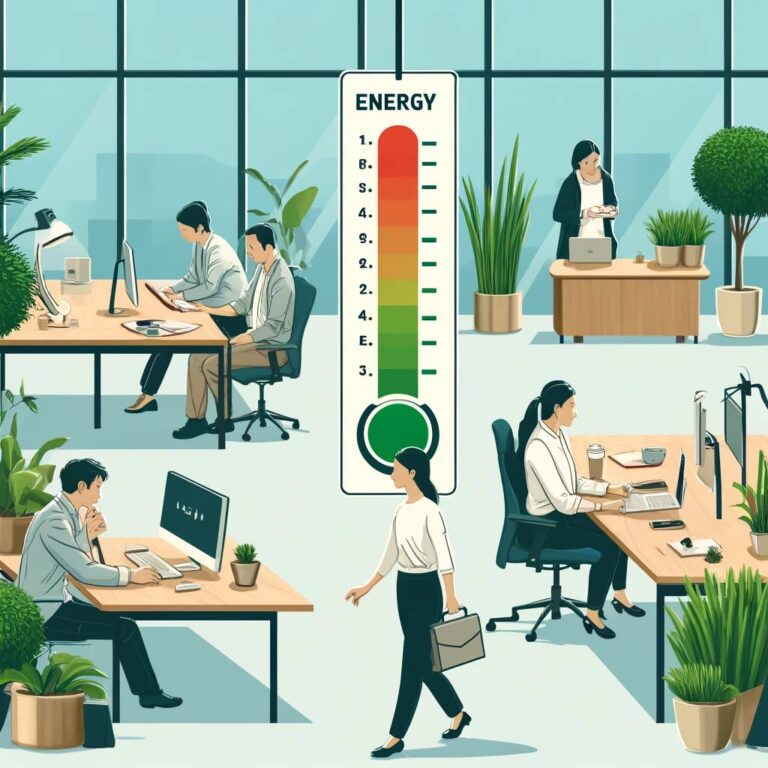Today’s topic focuses on how work can sometimes drain energy and what that reveals about our focus.
It is crucial to recognize that feeling depleted at the end of the workday might indicate a work environment that does not support creativity or provide the right space for presence and concentration. Work should be a place where we can grow and contribute, not just contribute.
I have learned from my therapy mentor that if a therapist leaves a session more tired than their client, then they have tried harder than the client themselves. This teaches us that our energy levels should be balanced throughout the workday—we should not give more than we have to offer.
A practical tip shared by a former trainer: assess your energy level on a scale from 1 to 10 at the beginning and end of each workday. Ideally, you should leave work as energized as you arrived, or even more so. This helps us understand how much we expend at work and how to better regulate it.
The words of Hippocrates, “Before you heal someone, ask him if he is willing to give up the things that make him sick,” resonate deeply within the context of work culture. Often, we try to “heal” workplace issues that people are not ready to let go of, whether they are bad habits or negative attitudes. The energy we spend trying to fix unchangeable issues can quickly deplete our own resources.
In the organizational context, emotional dependency is often a barrier to independence. If a leader focuses too much on the “sick” or problematic employees, other team members may feel neglected. Finding balance requires wisdom and self-awareness.
I invite you to consider how your work environment affects your energy and creativity. Does your organization support a healthy work-life balance? How can you better manage your resources to not only preserve energy by the end of the day but also enhance it?
Picture by DALL·E

